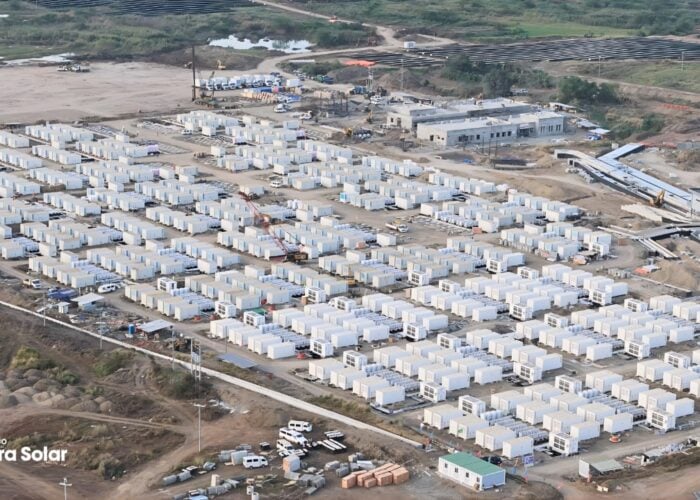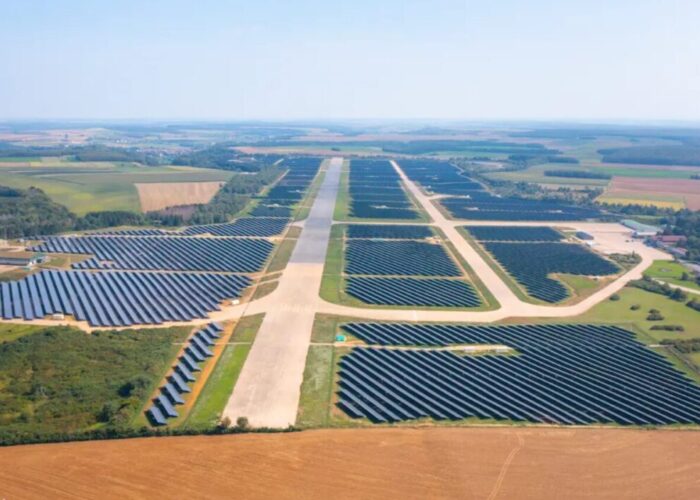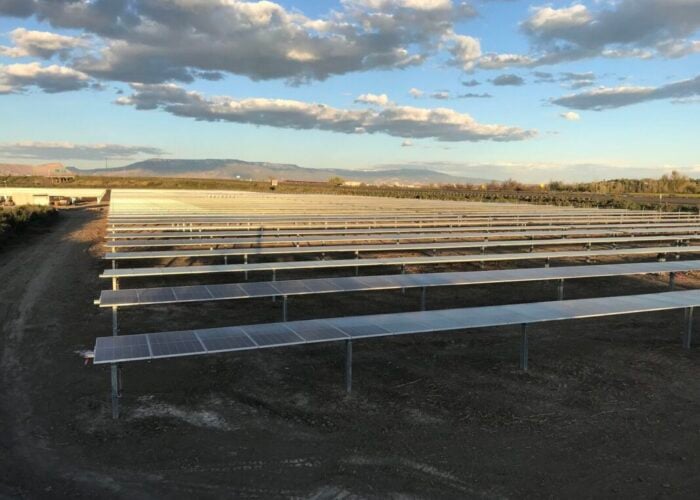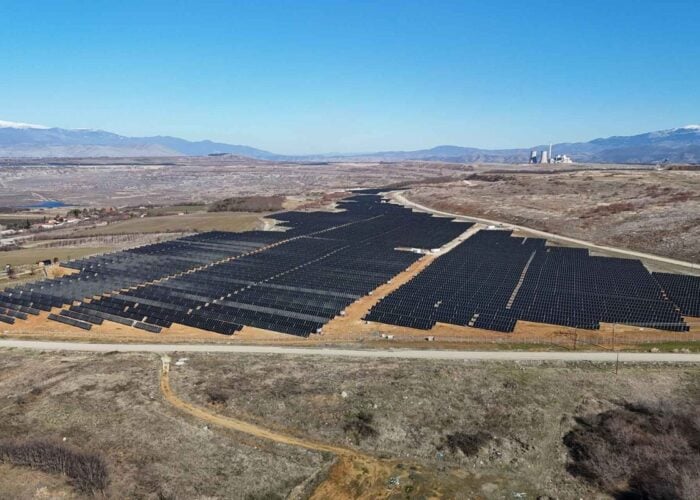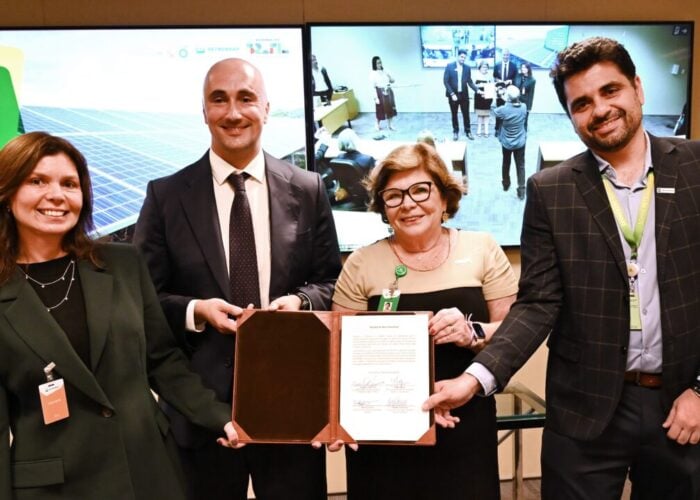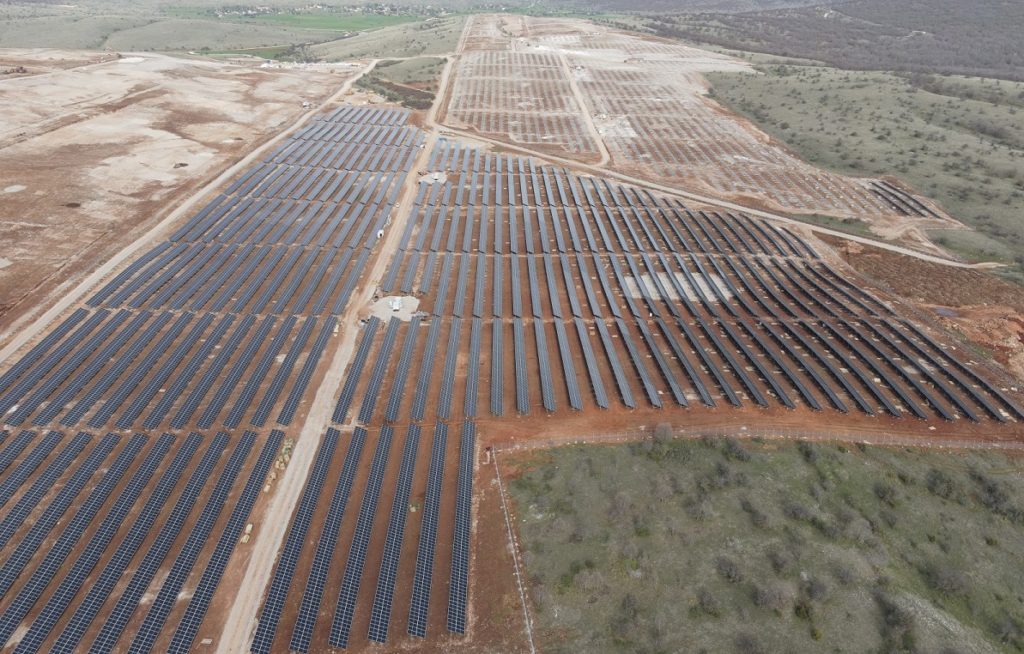
Policy support in the form of renewables auctions is driving solar deployment in Greece, but the sector’s growth could be under threat from limited land availability, grid bottlenecks and a local resistance to new projects.
The country’s third solar-wind tender for up to 350MW of capacity is set to take place later this month, with authorities intending to allocate PV projects up to 20MW. This will be followed by an additional six hybrid auctions by 2024 that could assign as much as 2.1GW of renewables capacity.
Try Premium for just $1
- Full premium access for the first month at only $1
- Converts to an annual rate after 30 days unless cancelled
- Cancel anytime during the trial period
Premium Benefits
- Expert industry analysis and interviews
- Digital access to PV Tech Power journal
- Exclusive event discounts
Or get the full Premium subscription right away
Or continue reading this article for free
However, some larger projects could be excluded from participating in future auctions, as they are unable to receive grid connection terms – a prerequisite for taking part – from the country’s Independent Power Transmission Operator (IPTO), which has recently received a flurry of grid connection requests from smaller PV plants.
That is according to Takis Sarris, managing director of juwi Hellas, the Greek subsidiary of German EPC juwi, who says the bottleneck is expected to be resolved “in the next few weeks”, as there are currently projects in the range of 20 – 100MW that “cannot go into the into the auctions, just because the IPTO cannot issue the grid connection terms”.
Recognising that licensing delays could impact clean energy investments, Greece’s government last year revealed plans to reduce administrative challenges as part of an effort to shorten the average licensing time for renewables projects to two years.
With Greece aiming to reach 61% of its electricity consumption from renewable sources by 2030, other policies to support the transition have seen the government announce plans to close the country’s last coal plant in 2025, three years ahead of schedule, while majority state-owned utility Public Power Corporation (PPC) is aiming to spend €3.4 billion (US$4.1 billion) to develop an additional 1.3GW of renewables capacity and modernise the country’s distribution grid.
Speaking during a session at this week’s SolarPower Summit, Greek Minister of Environment and Energy Kostas Skrekas said Greece is decarbonising its energy mix “at a faster pace than any other European country”. He added that the country is working to upgrade and expand the electricity network and will invest almost €9 billion by 2030 on the modernisation of electricity grids and interconnection of islands with the mainland.
However, Sarris says the results of previous IPTO pledges to expand grid infrastructure have yet to be seen: “The current infrastructure is just not enough.” He says the transmission operator is instead pushing for companies to form clusters and together build 400kV substations themselves, which are “really expensive. And you cannot by yourself, you need to form alliances.”
With increased Greek government support for solar in the form of upsized auctions and planned grid upgrades, research published earlier this year from Fitch Solutions found that risks to solar capacity growth in the country are abating, and suggested that the segment “will continue to offer increasing opportunities for both foreign and domestic developers”.
The consultancy also pointed to an initiative to convert coal power sites to renewables, with the new developments able to use grid access and site infrastructure. At the end of last year, PPC Renewables secured generation certificates for 1.9GW of solar capacity that will be developed in the Western Macedonia region, where most of Greece’s lignite units are located.
This transition away from coal generation has sparked a surge in applications for new renewables projects in the area, Sarris says, and led to resistance from some local authorities and communities that have concerns surrounding the impacts of large-scale solar projects on the landscape. Consequently, many councils are said to have stopped granting permissions that are required to further develop new PV plants, an issue that Sarris said the sector is “really struggling with” at the moment: “The big majority of the local authorities, they have come to a silent agreement of not approving anything” until land-use schedules are worked out by the government.
These objections also mean developers have trouble finding suitable space for projects, as there exists a backlash in some areas against using public land for installations. This is especially an issue for developers of PV plants in the range of 20 – 50MW, Sarris argues, as public land often has more availability for suitable plots. “Now that we have the public objections, public land has become very difficult to get,” he adds. “And not only difficult to get, but it becomes also very expensive, it tends to reach the same price of the private land.”
Despite the challenges, juwi Hellas is progressing as planned with construction of the 204MW Kozani plant in the Western Macedonia region that is set to become Greece’s largest PV project when it is completed in the first quarter of next year. Featuring bifacial modules, the plant is backed by a power purchase agreement with Greek oil company Hellenic Petroleum.
Greece’s installed PV capacity was approximately 3,350MW as of year-end 2020, and it has a target under its national energy and climate plan to reach 7,660MW by 2030. With both domestic and foreign investors “flocking to the Greek solar market”, Fitch Solutions expects solar to account for 62% of new renewables capacity additions between now and the end of the decade.
According to Stelios Psomas, a policy advisor at Greek PV association HELAPCO, “it is certain” that the country will reach its 2030 installed PV target, which could be raised in the coming years as a result of new European Union emissions reduction goals, meaning the country may aim for 10GWp of solar by 2030.
Juwi Hellas’s solar pipeline in the country currently stands at 700MW of projects that are on track to be built by 2025. Sarris says that if you add another ten or 15 big solar players, the 7,660MW target could easily be reached, provided issues surrounding local objections to solar and finding suitable plots of land are overcome. He adds: “There are a lot of things that still need to be fine-tuned in order to be able to reach this target. But I really believe we can.”

